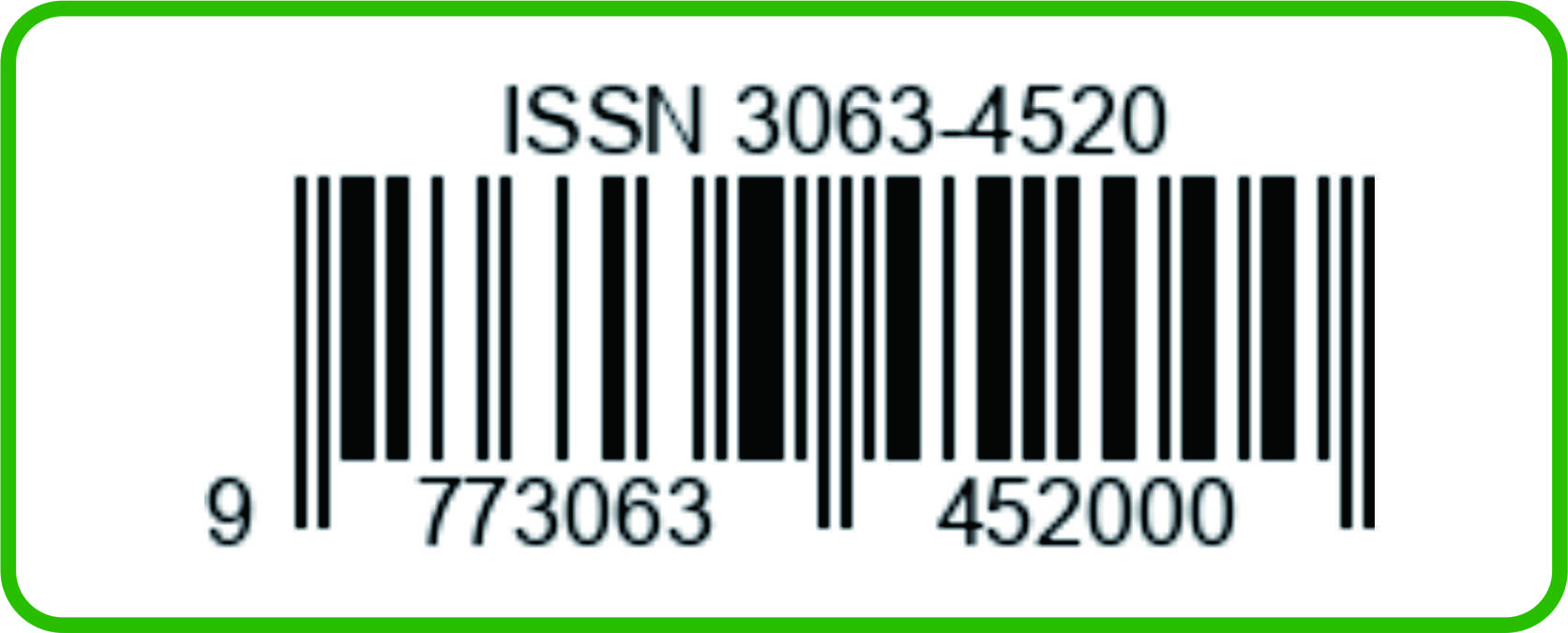Konstruksi Filosofis dan Konseptual Sistem Keuangan Syariah: Menuju Tata Kelola Nilai dan Keberlanjutan di Indonesia
Philosophical and Conceptual Construction of the Islamic Financial System: Towards Value-Based Governance and Sustainability in Indonesia
Keywords:
Islamic finance, Islamic economic philosophy, maqāṣid al-sharī‘ah, Value-Based Intermediation (VBI), sustainabilityAbstract
This study aims to analyze the philosophical construction and fundamental concepts of the Islamic financial system within the framework of strengthening value-based and sustainability-oriented governance in Indonesia. The focus of the study includes the values of tawḥīd (monotheism), amānah (trustworthiness), justice, and maqāṣid al-sharī‘ah (objectives of Islamic law) as the core foundations, along with their translation into the operational principles of financial institutions. Conceptually, the Islamic financial system is built upon the prohibition of riba (usury), gharar (excessive uncertainty), and maysir (gambling), combined with asset-backed financing and risk-sharing principles that fundamentally distinguish it from the conventional financial system. This research employs a qualitative-descriptive approach through library research, analyzing data from academic literature, fatwas, and relevant regulations using content and thematic analysis. The findings indicate that Islamic finance is rooted in a tawḥīdic worldview that regards wealth as a trust, transactions as acts of worship, and social-economic justice as its ultimate goal. However, the practice of Islamic financial institutions in Indonesia remains dominated by debt-based financing, which risks diverging from the ideals of maqāṣid al-sharī‘ah. To bridge the gap between ideality and reality, value-based governance emphasizing substance compliance is required, alongside the implementation of Value-Based Intermediation (VBI) and Environmental, Social, and Governance (ESG) frameworks to strengthen social and environmental impact. The integration of social and commercial finance—through innovations such as waqf-linked sukuk and blended finance—is expected to enhance inclusion and sustainability. Islamic finance will only achieve substantial relevance when the values of maqāṣid al-sharī‘ah are genuinely implemented in institutional practices and public policy design.
References
Alkhan, A. M. “Does Islamic Microfinance Serve Maqāṣid al-Sharī‘a?” International Journal of Islamic and Middle Eastern Finance and Management, 14, no. 2 (2021): 345–363.
Avdukic, A., F. Arif, dan H. Ibrahim. “Islamic Moral Economy Approach to Development.” Journal of Policy Modeling, 46, no. 1 (2024): 22–37.
Bank Negara Malaysia. Strategy Paper on Value-Based Intermediation: Strengthening the Roles and Impact of Islamic Finance. Kuala Lumpur: BNM, 2020.
Fatmawati, D., R. Pratama, dan H. S. Yusuf. “Shariah Governance in Islamic Banks: Practices, Practitioners, and Praxis.” Global Finance Journal, 52 (2022): 100651.
Issa, S. O., K. Hassan, dan S. Ali. “Climate and Shariah Governance in Islamic Banks: Exploring the Nexus.” International Journal of Islamic and Middle Eastern Finance and Management, 18, no. 2 (2025): 212–230.
Maulina, R., T. Nur, dan S. Widodo. “The Integration of Islamic Social and Commercial Finance: A Bibliometric Review.” Heliyon, 9, no. 6 (2023): e17654.
Okumuş, H. Ş., F. Kaya, dan M. Çelik. “Performance Assessment of Participation Banks Based on Maqāṣid al-Sharī‘ah.” International Journal of Islamic and Middle Eastern Finance and Management, 17, no. 1 (2024): 115–132.
Razak, A. A., M. Idris, dan Z. Ahmad. “Evidence from Islamic Pawnbroking (Ar-Rahn) in Malaysia.” International Review of Economics & Finance, 80 (2022): 432–445.
Safiullah, M., A. Ferdous, dan T. Hasan. “Does the Board of Directors Influence Shariah Board Governance in Islamic Banks?” Journal of International Money and Finance, 133 (2024): 102917.
Saleem, A., R. Bukhari, dan M. Aslam. “Financial Intermediation through Risk Sharing vs. Non-Risk Sharing Modes: Evidence and Implications.” Environment, Development and Sustainability, 26, no. 2 (2024): 1123–1140.
Šeho, M., H. Wagner, dan K. Pohl. “The Effects of Interest Rate on Islamic Bank Financing: Empirical Insights.” Journal of International Money and Finance, 104 (2020): 102135.
Downloads
Published
How to Cite
Issue
Section
License
Copyright (c) 2025 Andi Wawan Mulyawan, Abd. Hafid, Jamaluddin Majid

This work is licensed under a Creative Commons Attribution-NonCommercial-ShareAlike 4.0 International License.
Most read articles by the same author(s)
- Andi Wawan Mulyawan, Abd. Rahim Yunus, Susmihara Susmihara, Kekaisaran Utsmani hingga Era Erdoğan: Jejak Perubahan Identitas Islam dalam Sejarah Turki , DIRASAH: Jurnal Kajian Islam: Vol. 2 No. 3 (2025): DIRASAH: Jurnal Kajian Islam











